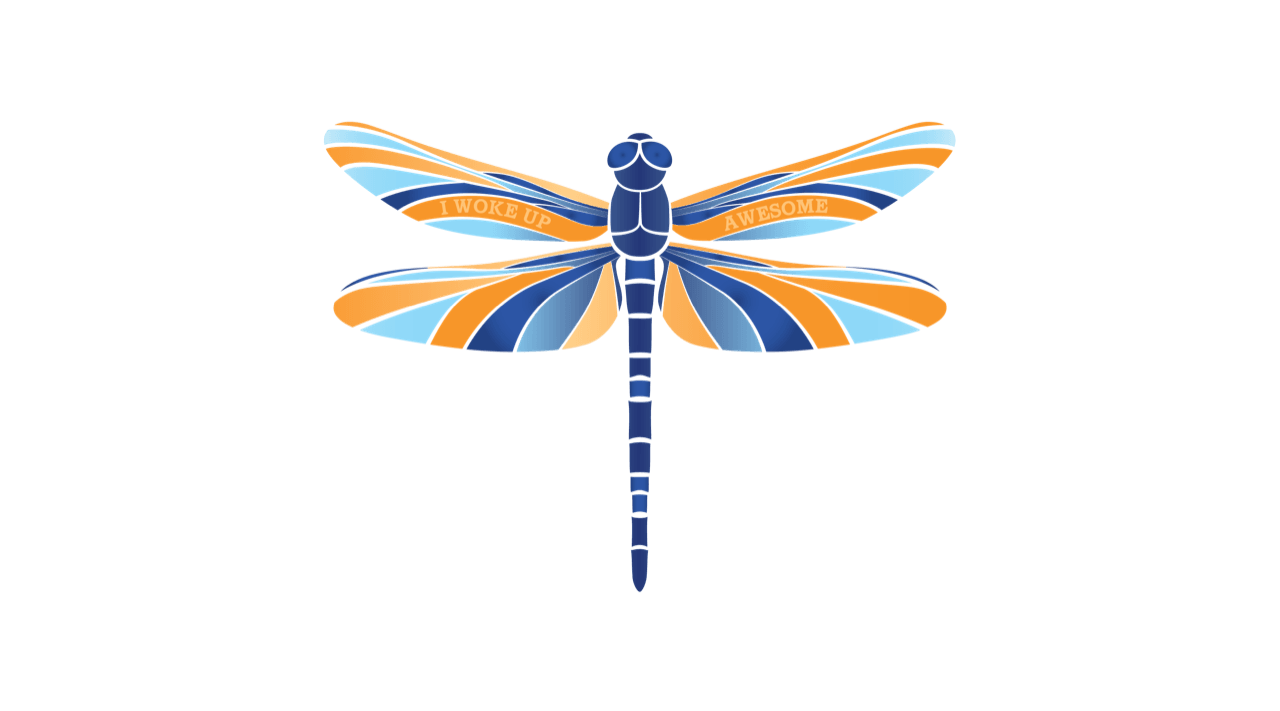This week we meet Skip Weisman and hear his plate story.
Former professional baseball executive and professional speaker, business coach and author, Skip Weisman, works with organizations to eliminate the entitlement mindset, taking employees beyond engagement to enthusiastic involvement, helping companies succeed with a more positive, more productive, and more profitable workplace. Skip was CEO for 5 baseball franchises over 16 years between 1986-2001. Since 2012 Skip has been a keynote speaker for audiences as large as 1,500 at corporate and association conferences across North America. In 2018 Skip published his first book, Overcoming The 7 Deadliest Communication Sins (www.7DeadliestCommunicationSins.com). To learn more and get in touch with Skip, visit www.YourChampionshipCompany.com. Free Resource: Your Employee Excuse Eliminator Checklist - www.YourChampipnshipCompany.com/pages/ycc/yeee/op Connect with Skip: Facebook - www.facebook.com/skipweisman & www.facebook.com/yourchampionshipcompany/ LinkedIn - www.linkedin.com/in/skipweisman/ Twitter.com/skip_weisman Instagram - www.instagram.com/skipweisman/ Subscribe to Trista's PL8STORY Podcast on Apple Podcast (http://bit.ly/itunespl8story), Google Podcast, Spotify or your favorite podcast app and access all published episodes Nominate a plate - www.pl8story.com Meet your host - www.iwokeupawesome.com Visit Our Sponsors and support future episodes - https://www.iwokeupawesome.com/pl8storypartners.html
TRANSCRIPT:
NOSRENDR
[00:00:00] Trista, Host: [00:00:00] Welcome to this week's episode of Trista's PL8STORY Podcast. I'm Trista Polo from iwokeupawesome.com and I am your host.
Each week we learn the story behind that vanity plate. The one you saw driving down the road, what did it say? What did it mean? Why did they choose it?
Trista Polo, Host: [00:00:17] This week we meet NOSRENDR plate owner, Skip Weisman, from the Hudson Valley, New York. Skip is a former professional baseball executive and a current professional speaker, business coach and author. Skip is a big fan of Bruce Springsteen and chose his plate in honor of one of the Bosses best songs.
Skip was also the CEO of five baseball franchises. And he's responsible for bringing the Hudson Valley Renegades to the home may have had since 1996.
As a business coach, Skip helps CEOs and teams work on their communication to increase productivity [00:01:00] and profitability. On today's episode, Skip shares his Bruce Springsteen concert experiences. There are a lot. And toward the end of our episode, he talks about the top three communication sins that may be negatively impacting your relationships and how to shift them.
Alright, let's go meet skip.
Hello, and welcome to this week's episode of Trista's PL8STORY Podcast. I'm here with Skip Weisman of Poughkeepsie, New York in the Hudson Valley. Welcome, skip.
Skip Weisman: [00:01:32] Thank you Trista great to be here. I'm excited to talk about this.
Trista Polo, Host: [00:01:35] Awesome. I'm so excited. Now it's so funny because I have to tell our little backstory we've known each other for a super long time, many, many years . And I didn't actually realize that you had a vanity plate until we met up at a ribbon cutting of a mutual friend.
And what did I think you said, so what's going on? What's new. I'm like, Oh, well I have this podcast and you're like, Oh, well I have a license plate. And it was like a match made in heaven.
Skip Weisman: [00:01:59] Yeah.
Trista Polo, Host: [00:01:59] So [00:02:00] tell us about your plate. What's your license plate and what's the story behind it?
Skip Weisman: [00:02:03] Well, the license plate is.
well, if you read it out is "No Surrender", people get all put all sorts of meanings on that and try it as, you know, probably guests what's, you know, what's the backstory, what does this mean?
And, Around 9/11, it was very interesting because we would get all sorts of people going by and shaking their fist and Oh yeah, go go USA. Right? We're in this war.... we're not going to surrender to whomever. Right. And I said "yea, that's not really what it means". For people who know me best know that I'm a big fan of Bruce Springsteen and that is a song that Bruce released on his 1984 album. It was the album that really made him explode as a rock superstar, Born in the USA album and the song is No Surrender , and it really speaks to him and the band's commitment to making it in music. It's all about the music and, and not giving up their dream of making it in the music industry. And so, [00:03:00] I've used that as sort of a metaphor for my own career when the song came out.
I was in my second year. Just starting my third year in professional baseball, my background. Got my master's degree in sports administration and wanting to be in baseball. And that was really, Bruce's music has been a catalyst for my entire career, my entire life, since I was 16, it's very to me, it very inspirational, very motivational. And in my third year of baseball, my goal was to become the CEO of minority baseball team as quickly as possible. And so that theme of "no surrender" just really spoke to me. And I figured I want to have this around. Now, that was 1984. I didn't get around to putting the plate on my car until 2000 when I got a new car, that I thought would be a perfect fit for it in the car at the time was a BMW, Z 3...a nice little sports Roadster. And I had, I really had a lot of self searching evaluation to do because bruce has a [00:04:00] lot of songs.
Trista Polo, Host: [00:04:01] Well, that's what I was gonna say. I mean, you chose one song out of his whole catalog and being a fan I bet it's not the only song of his you love.
Skip Weisman: [00:04:09] Right. And so I had to do some reflection and figure out the letters and what works and what made the most sense. And your listeners may or may not know much about Bruce. Bruce has another song called Darkness on the Edge of Town , which is in his, Well, I think it's his best album.
It's the title of the album. and so I was going to use darkness as, as the, the license plate title. The car was all black, black, exterior, black interior, black top, and that would have fit so perfect. But again, I thought it was too much of a message that people would not have understood or gotten. And it's kind of dark, you know,
Trista Polo, Host: [00:04:46] I was gonna say, not quite as uplifting as you could imagine no surrender meanings would be.
Skip Weisman: [00:04:50] Right. And so, so that was my second choice. I really wanted to do darkness. Cause I thought it'd be really cool. And it has all the song has all the meaning for me too. But I just thought [00:05:00] projecting that out outwardly into the world that it would have been too negative. I think so people didn't know the reference.
So I, so I went with no surrender.
Trista Polo, Host: [00:05:09] I love it. Now, you have other songs besides those two that have a lot of meaning for you in Bruce's catalog and you have really a commitment to participating, not just listening, but live as well with Bruce's concerts. So I would love to have you share a little about some of your experiences and, how many concerts of Bruce's have you been to?
Skip Weisman: [00:05:34] I've seen 87 live performances. That, that includes three of the Springsteen on Broadway shows. So that was not necessarily a concert, but it was a live performance. I've seen him solo on his own, in small theaters. And I've seen him in live stadiums with 80,000 people. and I had the great, good fortune to be in a small bar with about 70 other [00:06:00] people.
And. The summer of 1999 when he was just hanging out in Jersey and he went to see a friend of his who was playing and we sort of stopped in cause we knew he'd be there if his buddy was playing,
we had a long, good, good, good, good reconnaissance that he was going to show up.
Trista Polo, Host: [00:06:20] So, do you know how many States you have visited and how many countries you have visited to see him live? Do you keep track of that?
Skip Weisman: [00:06:29] Yes. I have the entire catalog of all the shows I've been to, States I haven't really counted them, but I can tell you from, from countries, I've seen them in the United States, obviously Canada, Germany, Spain, Portugal, Italy.
Trista Polo, Host: [00:06:46] Wow. Now, do you go to the country and then he's there? Or do you go to see him and then you're in the country. So you'll do some sightseeing. Let's really dig into the Bruce Springsteen fandom.
[00:07:00] Skip Weisman: [00:07:00] Most of those are planned concert or trips. Actually, all of them were. The first one though, was really interesting because 2008, he released an album in 2007, the end of 2007. And they always will tour, you know, behind all the albums. Two years before that in 2006, my wife and her family from Ireland scheduled a family reunion for May of 2008. So two years in advance, they planned this reunion. People came from all over. It was a week long event.
It was really a lot of fun. and so December of 2007, about two months after the album comes out, he announces his European tour. And before I looked at the dates, my wife said, if Bruce's going to being anywhere in Europe the week we are in Ireland, I will give you a permission to take off for a couple of days to go to the concert.
So I'm looking at the tour and wouldn't, you know, it, he was [00:08:00] playing in Dublin the week of the reunion.
Trista Polo, Host: [00:08:03] Wow. You couldn't have planned that better if you'd call them up.
Skip Weisman: [00:08:06] Right. Exactly. And even better, it was at the end of the reunion. So the reunion ended on Thursday was Sunday through Thursday. The shows were Thursday, Friday and Sunday.
We got tickets for the show on Friday and everything worked out perfectly. It was great. and so that was the only one that was really tied to another event. The other ones were specifically, we went to do the shows in Europe on the, the Ireland show. Actually led to the other European shows. Cause I met somebody there that, at that show, my wife and I met this gentleman who was from Hamburg, Germany, who, if you were sitting next to him, you would never know he was German, he has virtually no accent, but he speaks like five languages.
And we became, we're really good friends with him and his family. and he came over here. we've seen about 20 shows together since 2008. He's come here. and we scheduled a tour [00:09:00] in 2012, where I flew to Berlin. We saw Bruce that night in Berlin. We drove to San Sebastian Spain. We went to Elizabeth Portugal and then three shows in Italy. Over a two week stretch, we saw six shows in 13 days.
Trista Polo, Host: [00:09:13] Wow.
Skip Weisman: [00:09:14] We just drove, drove around Europe and it was one of my best vacations ever. And like, My wife and I both have a really good family in Hamburg, Germany.
Trista Polo, Host: [00:09:24] I love that you, you kind of have a different take on why to travel, how to travel.
So you're going to see these concerts and even, especially when you're seeing a bunch in a short period of time, is every show exactly the same.
Skip Weisman: [00:09:38] Yeah, no, Bruce is really good at changing up a set list. So he has a standard set list that will change night to night. he'll play about 27 to 30 songs, 32 songs, and usually about half will be the same, the other half he'll trade in and out, or they'll change the order around, or they're open to show with something different.
So there's, it's always something new. it's been his [00:10:00] philosophy and his theory to make each show unique. So if you only get to come to that show and that's the, you're going to see something that nobody else will see, and he's really good at doing that. So there's the, the. Really unique thing, I guess, about the shows, especially in Europe, that my wife thinks I'm absolutely insane about, is we want to get into, this is probably never going to happen again because of the virus thing, Corona virus.
But Bruce has a thing called the pit, which is a corral in front of the stage and that's general admission seating for the whole floor of the arena or the stadium. And then. If you so desire, you can try to get into the pit with your general admission tickets. And they only usually allow a thousand or 1500 into the, into the corral.
So you have to line up to get into the pit. Now in the United States, States, it's a lottery. So you line up, you get a wristband and they pick a number at five o'clock and you line up, whoever gets picked first wins the lottery and they're number one going in. [00:11:00] In Europe, it's just a list. So whoever lines up and is the keeper of the list, some fan club, or some person starts their own list.
and it's self regulated. It's actually very, very cool. Everybody is very respectful to each other. You go, who's holding the list. You go to the person who's holding the list... they write your name down on the list. you get a Sharpie you know on the back of your wrist and that's your number and you have to check in every three or four hours to keep your space in line.
And this goes on for two or three days.
Trista Polo, Host: [00:11:28] Wow. I was going to say if it's every three or four hours, it must go on for a while. So this goes on for days
Skip Weisman: [00:11:34] could, could be days so on the European trip with Niles, you know, we would go from city to city sometimes let's say there was a show tonight that we're at and it was another show tomorrow night is, or was in, in Italy.
People are already lining up for that show. So we're going to show the night before we're going to be a little bit farther back on the list because we can't get there until early the next morning. So, but if you're in the first two or [00:12:00] 300 you got a good, pretty good spot in the pit, and then we're fine with that.
so, so that's the way we play the pit games. So my wife says, okay, you're going to Europe for two weeks. You gotta see something other than just the shows. and so, we got, we got the Portugal and we had a pretty much a full day, in Portugal before, before the show. So we did some touring, of Portugal. Did you know that there is an Eiffel tower in Lisbon?
Trista Polo, Host: [00:12:25] I did not. Is it the same as the Eiffel tower in Paris
Skip Weisman: [00:12:28] Built by obviously the same guy, but doesn't look like that, but just a little more, more straight. so we got, I got to go up on the Eiffel tower in Lisbon, so that was, that was something cool.
and then when I did get to see the leaning tower of Piza on our one day, and then we had three days in Italy. But only one that we could allocated to doing nothing.
Trista Polo, Host: [00:12:50] Right.
Skip Weisman: [00:12:51] Because we were committed. If we, if we were just going to the show to get a seat in the stadium, we would've had more time, but we wanted to get into the pit.
Right. So, so we just played the game and that was it. It's a [00:13:00] lot of fun because you're, you're hanging out with people who were there for the same thing. And you're meeting people from all over the world that are traveling from all over. Some people, you know, people think I'm crazy seeing Bruce 87 times, but we met people on that tour that saw all 38 shows on that European tour that sometimes. Do you have a life and where do you get the money? Where do you get the time off to do this?
Trista Polo, Host: [00:13:19] I wondered that, you know, that's like the Dead tours when they were touring, there were people that would just follow them around the country for years. I'm like, but how do you buy food?
You know, you gotta have somebody paying for all of the things that it takes to be alive.
Skip Weisman: [00:13:34] Yeah. Yeah. No, and it's not cheap. The show tickets aren't that cheap or about a hundred bucks a piece plus you've got travel, plus you got food. so yeah, it's, it's definitely an investment, but it's, it's, it's created some of the greatest memories of my life and I can't say enough about the, the experiences I've had.
Trista Polo, Host: [00:13:51] That's awesome. Is he still touring? Cause he's gotta be getting up there now in age.
Skip Weisman: [00:13:57] he would tour if he could, he's supposedly getting [00:14:00] ready to release an album. That's sort of in the, in the, in the hopper right now. They're, they thought they would be releasing it by now and then go on tour. But I think the whole virus thing has put, put things on hold.
So, when he can, I'm sure he will tour again and get the band back together. so the last thing he did was, you know, the two, a two year thing he did on Broadway and 2017, 2018.
Trista Polo, Host: [00:14:21] Awesome. so you are more than just a Bruce Springsteen fan. You are also a sports aficionados, as you said, you went to school for it.
And your goal was to be the CEO of a minor league sports teams. So did you reach your goal?
Skip Weisman: [00:14:36] I did. I was lucky enough in my fifth season, in 1986 to be in the right place at the right time. And, The gentleman I was working for, who was the CEO in? We had an ownership group that own six teams. I was in Greensboro, North Carolina, and one of our teams in Huntsville, Alabama had a problem with their CEO actually has some health issues and with the doctor told him, he had to get to retire. [00:15:00] So they promoted my CEO to go to Huntsville and they asked me to step up. So I was 26 years old and I took over my first minor league baseball team. And that was great. It was also, you know, Some growing pains and running an operation that young age and leading a franchise.
But over the next 16 years from 1986 to 2001, I, I led five different teams in this area and in our area, you know, Trista where we live you know the team is the Hudson Valley Renegades. They've been a single A affiliate for the Tampa Bay Rays since 1995. And, it was my last team here. I spent eight years leading the Hudson Valley Renegades after actually moving the team from Erie, Pennsylvania to, Fishkill New York to start the baseball team. That's the thing I'm most proud of in my whole career, starting a franchise. Building a stadium and doing it all right from the very beginning. And it's quite the legacy and the team is still thriving today.
Trista Polo, Host: [00:15:51] It really is. And so the Hudson Valley Renegades is what brought you to the Hudson Valley, right?
Skip Weisman: [00:15:56] Yep. Yeah.
Trista Polo, Host: [00:15:58] Yeah. I've been to many of the games. It's [00:16:00] a really fun family friendly experience. It's entertaining and it's also baseball and it's a wonderful, a wonderful thing to have here in the Hudson Valley. So thank you for bringing it here.
Skip Weisman: [00:16:12] Thank you for the community for welcome with unbelievably open arms.
I don't know where you were at in 1994. It's been 26 years. Now this, this would have been their 27 season. not sure what's going to happen. I mean, they are not going to play this year, which is really sad.
When the team came to town at a very challenging economic times for the community, it far exceeded our expectations. we were more successful, wildly successful beyond our expectations. And, I love the community I love being in this area. I grew up in central New Jersey, so it's just two hours from where I grew up.
I love New York city and we're close enough to get down there and spend a lot of time in the city. So, this is, this is where I made my home for the last 27 years. And, we have no plans on, on moving. We are not my wife and I are not going to be the folks who retired to [00:17:00] Florida.
Trista Polo, Host: [00:17:02] This is where you'll retire to, right, right? Where you already are. Well, you said, I don't know where you were when, so I know where I was. So my husband, Russell, and I were not married, but we were living together in an apartment in Chelsea. Ridge Park apartments, which is actually just down the road, it's on the same road as the Renegades. And so I remember there were neighbors that were passing out schedules. This is when you don't want to drive home this way, because there was always a ton of traffic that you had to deal with when the game was in town, which is actually. It speaks to the success of the game, right? Because right from the very beginning, it was very well attended. It had a ton of people attending the games, especially when they were home.
And, but the other memory I have, which is actually a very. Wonderful memory is one of our friends that Russell went to high school with. And we're still friends today. They actually live in North Carolina, very near [00:18:00] Greensboro. So it's sort of weird how you changed places. But anyway, so he was living in like Croton area, Yorktown, Croton area at the time, and he loves baseball.
And so when he found out that we had this, you know, minor league team coming to our area, we saw a lot more of him. We went and played golf all the time. Like he was just up here so much more, cause it's only an hour away, but when you're working in busy and life is going, you know, it's hard to get together and we saw him, his name is Jim.
And, our other friend, John, we just saw them so much more and it was really thanks to the Renegades being in town. That was the catalyst. So, so thank you for that. Cause those are memories I'll have forever, even though he lives really far away now. And we don't see him more than maybe once a year, if that.
Yeah, no, that's a great thing about minor league baseball in a community. It really brings the community together. It brings people out, It's going to be [00:19:00] so sad. Some are not to have that yeah. For people in our community right now. But yeah. And we can only do what we can do, right. What we're facing. So
that's right.
It certainly is. And it'll be back, I think, we'll, we'll be back to normal someday.
Yup. Yup.
So you're no longer in the baseball world you have gone on to become a keynote and motivational speaker. You've written your own courses and speeches and presentations that you use for local businesses and large organizations.
So, what is your specialty in the realm of keynote speaker?
Skip Weisman: [00:19:40] I speak on leadership, teamwork and communication. And how to use communication to bridge the gap between leaders and the people that they lead. Because there seems to be real disconnect between how leaders communicate with their people to really motivate them.
[00:20:00] And I see small business leaders between six and 60 employees, for the most part, making the same mistakes I made as a young leader, 30 years ago.
And to me, that's sad and I want to help fix that. And it's really not hard. as long as the business owner is open to seeing that, you know, they have some room to grow and that they have tremendous influence just by how they show up and not even what they say on often times what they don't say. Right.
And, and really understanding that they have to. They have to lead and in practice what they want to see in their people and lead by example, and be able to communicate effectively to bring people along with them for in the right way. And, so yeah, that's my main topic. I wrote a book two years ago called "Overcoming the Seven Deadliest Communication Sins: a New Standard for Workplace Communication," which really gives the [00:21:00] foundation of the seven communication mistakes. We all make not just as organizational leaders, but in families, in our intimate relationships. And they really get in the way of our ability to, to engage with people and build trust and respect yeah.
Trista Polo, Host: [00:21:16] You know, I find with communication that we have to look inward much more often than we look outward for how our communication is. If I look over at you to see what's wrong with your communication, that I'm sort of missing the Mark. So what you're talking about of the leaders of an organization, being willing to take ownership for the culture, the way people communicate.
What's okay to talk to each other, you know, that kind of cultural stuff and, and the norms of things all comes from the top. And yet I think that typically we want to see what other people are doing wrong. Cause that's a lot easier than looking at ourselves in the mirror. So [00:22:00] what you're doing is very needed and wanted.
And I'm glad to hear that there are... that you have clients that want to take a look at that and really transform them in their organizations. It's gotta make a huge difference for their productivity.
Skip Weisman: [00:22:14] Yeah. And it, it really creates a work environment that people really enjoy going to every day, as opposed to dreading going in there.
And it's really, it's, it's magical once the business owner is open to opening up and seeing not that they're necessarily the problem. But that they're the catalyst for fixing whatever problems there are. And to be really in the trenches alongside their people learning and growing together as opposed to fixing them or fixing you.
I want to bring those people together and then learn collaboratively and together as peers. and when they're open to taking that approach, it really works extremely well [00:23:00] because it brings down the intimidation factor and the barriers, and they see each other as human beings, not boss or, you know, subordinate or employee.
Trista Polo, Host: [00:23:09] Hmm. Yeah. Now you wrote the book about the seven deadly sins. I would imagine those are the most common things that you just see over and over and over again that get in the way. Can you give us your top three out of the seven?
Yeah. Good, good, good tank there because there are three that I call the. The primary communication sins, and the primary, because they are really global.
They really encompass the entire organization. They impact the entire organization when you communicate this way. And they're pretty. No, they're pretty common. and they're, they're sort of stealthy. We know there's a problem, but we don't really know what the problem is. And so that's why it never gets any better.
Cause we don't define it. We just know there's something missing. So these are the three that get in the way in the biggest way.
Skip Weisman: [00:23:59] One is a lack of [00:24:00] specificity being nonspecific, being very vague in our communication. We're not giving the details that somebody needs to be successful to give us what we need from them.
And. 99% of the time. It's not malicious. It's just lazy communication habits.
Trista Polo, Host: [00:24:16] And we don't realize. And I've a slew of examples that I share with in my workshops, in my programs. And people just are awed by it. Boy, I did that. Oh, I did that. Oh, I do that. You know, and we don't understand
Skip Weisman: [00:24:28] the best example I can give you just to give an easy tip is stop saying as soon as possible.
Ooh. Okay. Say more about that.
Well, as soon as possible, ASAP, however you want to articulate, it means absolutely nothing. You you're view of what soon is and as soon as possible is much different than what mine is, is based on what we have to do. Yeah. Where we're at, what our priorities are, right. Where we're in the mix of whatever we're doing when you bring that to [00:25:00] me and ask to get it to me as soon as possible.
So there's that, there's no clarity on that and I can never fulfill it, all that for you. Cause it's never going to be soon enough. we're going to miss some expectation there. And so the challenge with that is two fold, both sides of it. One, you say it and I understand, I realize I'm not exactly sure what Trista means by that, but I'm also not of the mindset that I'm going to push back and say, I don't really understand as soon as possible.
Can you explain what, what your real deadline, what your real time table is, so that I can fulfill your expectations and get you what you need when you need it. Most people will not push back and ask. They'll just accept it like lemmings and nod their head and go, and then get stressed and figure out now, what am I, where is this going to be in my priority list?
And it drives, it drives us crazy. And then we, then I get upset with you too demanding or your, your, your, no, I just, we didn't have this conversation to force things out and get [00:26:00] clarity around what that means. That is huge. And I tell people, if you just fix that one thing you can, Increase your productivity by 50% almost overnight.
Just get more specific. The second one is a lack of directness and candor, and it's related to the lack of specificity we're beating around the Bush. We're not telling people what they need to hear, in very specific, direct ways, setting performance, expectations, setting goals, telling people what they're doing wrong and how we need them to get better. Most of the times we're beating around the Bush. We're being fluffy. We, we use euphemisms and different things and we hope that you get it. And then, and I get nods, like you're giving me now. And nothing ever changed as well. I saw your head nod. It seemed like you were in agreement.
You knew it. I was talking about no behavior and nothing changed, and now I get upset with you. And then it goes to that. So lack of directness and candor, we need to get the gumption [00:27:00] to be direct with people. and talk about things that we need to say. The third is what I call lack of immediacy, urgency and promptness.
Which is a fancy way of saying communication, procrastination, we're putting off the conversations we need to have. and things are festering. Things are building and growing. time is fluttering away and by the time I get up the gumption to it, or I figure out what I want to say in a direct manner, weeks have gone by now. I'm coming to you with this thing and you're thinking, well, why didn't you tell me this weeks ago? The same. They operate this way for three weeks. Yeah. Now that I look stupid you made me look bad. Wher if you would have told me in the moment. As I say, at the first, most appropriate time, we should be within 48 to 72 hours.... we can deal with it and we can make changes and things don't fester. And then we're on the same page much sooner, and we can build trust and respect in that way. [00:28:00] Those are the three big ones. And if you, if an organization or a family, or a couple, even, worked on those three areas, things would be so much better, so much nicer more copacetic, everybody be getting along better, but it's, it's hard. We're not trained to communicate this way as we're growing up and we just pick up bad habits. And most of this has just been habits. Very little of it is malicious. There's some other communication systems that are malicious. but you know, I think most people are, you know, mean mean well, and they're just trying to get their needs met.
And this is how they were. They learned over time and we build these bad habits and nobody ever teaches us any other way.
Trista Polo, Host: [00:28:45] Yeah. You know, I've developed a leadership style that has kind of answered the problem of the second one that you're talking about, which is to be direct, but with unconditional love, because directness can come off harsh.
[00:29:00] So I try and do it in communication. Like. This as opposed to a text. Cause I can never tell what people mean in a text. And I know I'm always assuming they mean it the meanest way, especially if there are no, I use emojis to, to soften the blow in a text. Yeah. Because in a text you just never know what the person's back tone is.
but I mean every one of the three things that you're talking about, I still say as soon as possible. And if I'm going to be really honest and look at it really clearly like responsibility here. First, I say, as soon as possible, and I don't want to be tied down to a deadline cause I don't know when I'm going to get to it.
So that's an interesting aha for me, I've definitely been working on the second one and I've created that very direct with unconditional love style. Which is how I can live with being direct. As long as I know you still know with it, I still love you. But yeah, I'm really direct.
Skip Weisman: [00:29:58] there's a model that I [00:30:00] also teach around leadership, which I call PDR communication, which is prompt, direct, and respectful.
And you've got to bring that gold component, that respectful component and or else it's going to be too harsh or deemed too harsh. and people will feel disrespected. So you need to bring that respectful part of it. This is you're talking about. I have plenty of people come up to me and say, you know, I have no problem being prompted direct, matter of fact, I've been told I'm too prompt.
Is that okay. I don't think you can be, too prompt and direct. What you're missing is the third component of, of respectful, which is tone your body language, the words that you use, and you let's take a look at that component. I think you'll get better results from people. For sure.
Trista Polo, Host: [00:30:37] It's funny. You know, when I watch people interact.
And they're just direct and prompt. What if, especially if they're both like that, it can create real animosity. And I think all it is is that they just don't feel any love coming from the other person. You're saying respect I'm saying love. I, I think they're the same
Skip Weisman: [00:30:58] and, and nobody's listening to each [00:31:00] other.
They're just yelling past each other.
Trista Polo, Host: [00:31:03] Yeah. Yeah, that's good stuff. Skip really, really good stuff. And you have a, that's a book people can purchase. Where can they buy that book from,
Skip Weisman: [00:31:11] sevendeadliestcommunicationsins.com is my website where they can get it and you can go through Amazon and get it as well.
But if it goes, but if you go through my website, you get a special gift with it. It's a postcard packet of five quick reference cards to help you communicate more effectively and take them with you. So free gift if you go through my website,
Trista Polo, Host: [00:31:31] then we should definitely do it through your website and I'll have the links of everything in the show notes and the blog posts where you can get all this stuff.
and then you have a giveaway though, if I'm not quite ready to commit monetarily to my communication, which of course we all should. What's the free gift that you have.
Skip Weisman: [00:31:47] So I just recently created this thing based on what I've been hearing a lot from business owners that I've been speaking to... prospective clients and also my clients, about [00:32:00] employees who they really frustrated with the employees and team members who make excuses, blame others, blame circumstances, the dog ate my homework thing that from, from school days that adults are still doing this in the work environment.
If you can imagine, and lack of accountability. So I created this thing called the, "Your Employee Excuse Eliminator Checklist. And it's a list of five areas that need need to look at it. And you're working with them that are actually causing or potentially causing, employees to show up that way.
if you go to the webpage, you can download that for free as well.
Trista Polo, Host: [00:32:31] I'll put the link in the show notes so that we can have just a really easy way to get to it.
And thank you for sharing a free gift. I think that would make a big difference.
Skip Weisman: [00:32:41] If you want to reset your work environment and your company culture. There's no better time than right now to do it because we just had this little pause or whatever happened in your company and we're starting fresh. Like, you know, I call the, the clean slate star. We can really use that as an excuse, and in a good way.
So
Trista Polo, Host: [00:32:58] yeah, [00:33:00] absolutely. Well, that's awesome. So do you have anything else you want us to know about you, your plate story or who you are?
Skip Weisman: [00:33:07] well, first of all, I'm just amazed at how, where this conversation went to after we just started talking aboutmy NOSRNDR Springsteen plate. no, I think you've covered it pretty well.
I, I, the one funny thing about the backstory of this whole thing is, we have a, we had three cars, we just sold one. We sold the BMW that the plate was on and. My wife wants to be totally anonymous. She wants to go through life anonymous. She doesn't want to be famous. I want to be on stages and do keynote.
So we're a little bit different in that way. And she hates the vanity plates because everybody knows who she is. If she has that on her plate. Right. And when we bought them, we bought them car two years ago. I said, boy, I'd love to get a. I'll wait for this, this car, right? Is it? No, I'm done. I don't want any, I mean, new plates.
So we sold the BMW C3 that had the no surrender plate on. And as the gentleman drove away from our home [00:34:00] with the car, I walked into the kitchen and she said, you know, if you want to put this plate on a new car, you can. So we transferred the registration on the new car and I got to keep my my plate.
Yeah. And I didn't have to ask. I didn't have to beg.
So, but now we use both cars pretty much equal equally. I probably drive more just because when business was out and about. No, I'd be doing a lot more driving.
She basically, she works a mile from home now she's working from home mostly, but even before that, she would walk 60% of the time office. And, and so I would do more most of the driving, but yeah, the cars are pretty much equal. Yeah,
Trista Polo, Host: [00:34:48] no, that's great. Well, skip. I really appreciate you sharing your plate story and more with us today. I always end with asking, if you have one question you'd like to ask me just to turn the [00:35:00] tables. So do you have one in mind?
Skip Weisman: [00:35:02] So we've known each other for a long time, but I don't really know much about your whole backstory. where are you from originally?
And did you go to school and college and all that stuff? What's your,
Trista Polo, Host: [00:35:13] my, my, my backstory. Okay. So, I was born in Tallahassee, Florida. My dad was going to college there. My parents were very young when I was born, they were sort of like fell in love and ran away together against their parents better judgment, in fact.
I lived in 26 different places by the time I was 18 years old, I didn't live anywhere longer than two years.
the last place that we lived while I was in high school was, in Hicksville Long Island, cause my mom got a job there.
Billy Joel country. In his school, which he did not graduate from. And so the choir director for my senior year [00:36:00] was retiring and Billy was coming out with the Storm Front album, and he had the choir director choose...I think there were 14 of us chosen to do backup on Leningrad . So my senior year of high school, myself on the album. Yeah. Right. See, I have secrets you don't know about, even though we've known each other for a long time. So on the Leningrad album, we didn't get name credit, but it says "members of the Hicksville high school choir."
we got to hang out with Billy Joel and then Christie Brinkley showed up with Alexa at one point and they hung out for a little while and Mick Jones was there helping produce it from Foreigner.
So he got to meet him. And it was like a really memorable, very cool day. And, I still have the music signed by everybody, from the day.
Skip Weisman: [00:36:55] That's great. That's a great story. Billy Joel's mine is my second favorite. [00:37:00] Yes.
Trista Polo, Host: [00:37:01] Yeah, but because of Hicksville, I ended up in New Paltz because it was a state school and that's where I met my husband and he's a sailor and he grew up in Croton. And so we've lived here ever since.
Thanks for asking. That was a fun story to tell. I haven't pulled that one out of the trunk in quite some time.
And thanks for being on Skip. It's really fun. You know, we've known each other in professional networking circles for a long time.
So to get to talk to you on my podcast about some totally different stuff was a nice, a nice change. Cool.
Skip Weisman: [00:37:37] Yes, it was great conversation. Great interview. Appreciate the interest in my work and my, my license plate.
Trista Polo, Host: [00:37:44] Absolutely. Thanks so much. Skip. Enjoy the rest of your day.
Skip Weisman: [00:37:49] Thanks.
Trista, Host: [00:37:49] Thank you for joining us for this week's episode of Trista's PL8STORY podcast. Please subscribe to Trista's PL8STORY podcast to get the story behind all those [00:38:00] vanity plates, driving with you on the road. And if you would like to nominate the owner of a license plate, including you... Or visit any of our partners and sponsors come and see us www.pl8story.com. That's P L number eight story.com and give us the details.
If you enjoyed this episode, please drop a review and give us a share. I'm Trista Polo wishing you well on the road to your next adventure.
I Woke Up Awesome Blog











